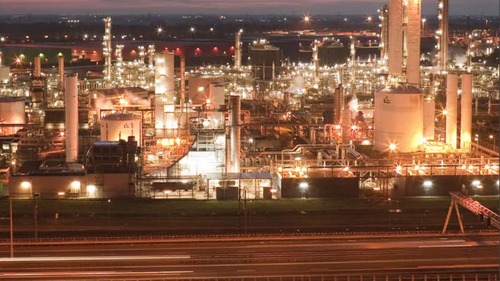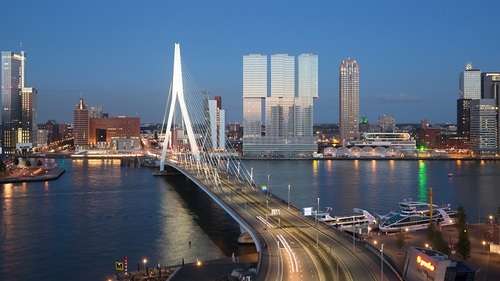Facts and figures energy port and petrochemical cluster Rotterdam, 8th edition, The Netherlands
The Port of Rotterdam Authority is delighted to present the eighth edition of the Facts & Figures about the Rotterdam Energy Port and Petrochemical Cluster. Through this guide, we hope to offer the reader insight into the production and terminal facilities found in the port of Rotterdam.
Since its last edition in 2009, the port has seen a number of major changes. One of the key developments for us - as the port’s ‘landlord’ - would have to be the opening of Maasvlakte 2. With the construction of this new land reclamation, the port of Rotterdam has enlarged its total land portfolio by some 20%. This land is made available to next-generation developments in the chemical, renewable, container and distribution sectors. Maasvlakte 2 is perfectly situated for exploiting the cluster advantages that have enabled the Port of Rotterdam to become a truly world-class port and industrial complex.
Major investments
The port community hasn’t rested on its laurels either. In 2011, for example, the Gate terminal for the import of LNG became operational at Maasvlakte. This terminal is already expanding with a breakbulk terminal for the distribution of liquid gas to bunker ships and smaller tankers. Two of the cleanest coal-fired power stations in the world have also started operations in Rotterdam. Many of the chemical companies and oil refineries have invested in the expansion or optimisation of their facilities. And in recent years, we have also seen a strong increase in the number of tank storage facilities. With respect to renewable energy, we are proud to announce that over the past five years, the port has increased its wind energy capacity by another 56 MW. This means that the port is making good progress when it comes to realising the ambition of 200 MW of wind capacity in the port by 2020. View chapter 6 for an overview of major investments.
Hub for the energy and petrochemical sectors
The port of Rotterdam has proven to be an outstanding hub for the energy and petrochemical sectors. Its pivotal location in Europe, excellent maritime access, substantial economies of scale, wide range of service providers and excellent connections by inland waterways, pipeline, rail and road make Rotterdam the port of choice for the world’s leading (petro)chemical and energy companies. Moreover, Rotterdam offers attractive cluster advantages, including shared utilities and a range of industrial clients at close hand. Many companies supply their neighbours with raw materials and semi-manufactured products. The residual products of one company can serve as raw materials for the other. Synergies like this create an extremely efficient and profitable business climate for all chemical companies in Rotterdam. And as said, Rotterdam offers room for further growth. The Port of Rotterdam Authority continues to enhance opportunities for our existing and future process industries. For more information, feel free to contact one of our business managers
Downloads
Categories
Investments
2016-01-01
at Port of Rotterdam (NL) Investment details2005-01-01
at Port of Rotterdam (NL) Investment detailsCountries
Companies
Latest news
Momentum Global Ventures completes Series B investment in Perpetual Next to €200 million
Chemical Cluster Delfzijl →Momentum Global Ventures will complete its Series B Investment of €200 million in Perpetual Next, the leading developer of biocommodity production sites (primarily biomethanol).
INEOS launches €250m investment supported by the French Government to secure the future of French industry at Lavera
The project marks the first phase of a long-term regeneration plan to reduce emissions, boost reliability, efficiency and competitiveness, with support of the French State.
Hycamite’s technology to decarbonize shipping awarded AiP by industry leader DNV
Kokkola Industrial Park →Hycamite’s proprietary Thermo-Catalytic Decomposition (TCD) technology offers a new approach to producing clean hydrogen by breaking down methane, the primary component of liquefied natural gas (LN...
Clariant catalysts will power the Ecoplanta: Europe's first waste-to-methanol plant
Chemmed Cluster Tarragona →Repsol is building Europe’s first plant to produce renewable methanol from urban waste The facility will use Enerkem gasification technology to produce 240 KTA of methanol Clariant will supply cata...


